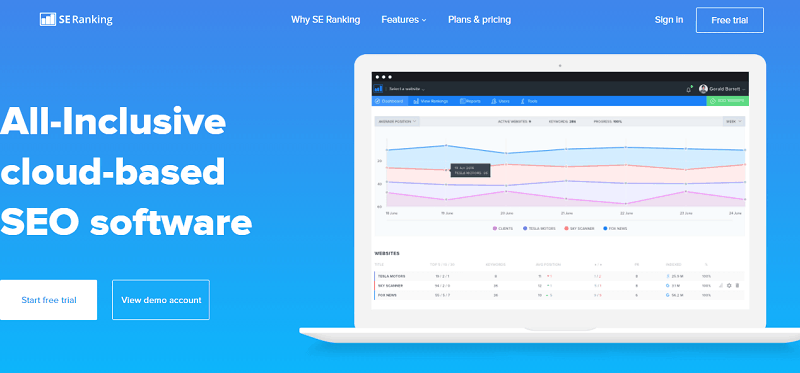Beholding a gargantuan legion of dedicated users, Google Chrome reigns supreme as the preference du jour for web surfing enthusiasts globally. Yet, the specter of privacy looms large, casting a dark shadow over our tech-imbued age. In this digital epoch, Google Chrome has taken strides to offer a melange of configurations, intricately designed to safeguard one’s personal data. This piece is destined to illuminate these configurations – your digital armor, if you will – explicating their function and enabling you to wield them proficiently to bolster your privacy to peak levels.
Table of Contents
Understanding Chrome’s Default Privacy Settings
Upon installation, Chrome comes with certain default privacy settings. While these provide a basic level of protection, they might not cater to the specific needs of individual users. For example, Chrome automatically allows all sites to use cookies and show notifications. Cookies are small files stored on your device to save browsing information, while notifications can reveal information about your browsing habits.
Users should take the time to understand these default settings, as well as how they can modify them according to their needs. This is where Google Chrome protection comes in handy, allowing you to manage these settings effectively.
Personalizing Privacy Settings for Enhanced Protection

To bolster your digital privacy, you must shape Chrome’s settings to fit your specific needs – a necessity, not a luxury. Begin the dance by directing your gaze towards the three vertically-stacked dots in the browser’s upper-right extremity – a portal to possibilities. A swift click will lead you into ‘Settings’, a realm of adjustment. Your next port of call? ‘Privacy and Security’. Navigate wisely, dear user.
Here, you can block third-party cookies, disable location tracking, and manage site permissions. Remember to check your settings periodically, as sites you visit may request changes. Using this flexibility, you can enhance your Google Chrome protection in the middle of your browsing experience, ensuring that it evolves along with your internet habits.
Using Incognito Mode
Incognito Mode is a feature that enables private browsing, meaning Chrome won’t save your browsing history, cookies, site data, or information entered in forms. However, downloads and bookmarks will be saved. It’s an effective tool to add an extra layer of privacy, particularly when using shared computers. Despite its advantages, remember that it does not provide complete anonymity – your activity might still be visible to your internet service provider or the sites you visit.
Taking Advantage of Advanced Privacy Features
Google Chrome also offers advanced privacy features that can provide added layers of protection. These include:
- Do Not Track: This feature sends a request to websites not to track your browsing data. However, it’s up to the individual sites to respect this request.
- Safe Browsing: This feature warns you if you’re about to visit a potentially harmful site or download a dangerous file. It is an integral part of Google Chrome protection.
- Privacy Sandbox: This is a newer feature aimed at enhancing privacy without completely getting rid of cookies. It aims to create a balance between user privacy and advertisers’ needs.
The Role of Extensions in Privacy Protection
Chrome’s Web Store offers a plethora of privacy-focused extensions, such as ad-blockers, cookie cleaners, and VPNs, that can further enhance your privacy. However, remember to only install trusted extensions, as some may pose security risks.
A Caveat to Chrome’s Privacy Settings
Despite its plethora of privacy settings, Google Chrome has been criticized for its privacy practices. For example, it collects a considerable amount of data for advertising purposes. Consequently, users seeking extreme privacy might want to consider alternatives like Firefox, Safari, or privacy-focused browsers like Tor.
Conclusion: Balancing Convenience and Privacy
While Google Chrome provides a variety of settings to protect your privacy, it’s essential to remember that true online privacy often requires a balance. Being aware of what information you share and with whom is crucial, alongside employing the necessary Google Chrome protection measures.
Overall, Chrome offers considerable customization in terms of privacy, with features ranging from basic cookie management to advanced options like Privacy Sandbox. By taking the time to understand these features, you can personalize your privacy settings to ensure a safer, more private browsing experience. This article should serve as a launchpad to deeper exploration and understanding of these settings. Stay safe and browse wisely!




















Google Chrome is a good browser for privacy. Thanks for sharing your tips about Google Chrome privacy.
My most favorite Google Chrome feature is incognito mode. Knowing that my browsing history isn’t saved and is automatically deleted when i close the browser window is a comforting feature – especially when I’m browsing online at work or from a friend’s house.
chrome has been update constantly last few months, most of it about privacy stuff,
My favorite is Firefox Mozilla when it comes to privacy. I ditched Chrome 5 years back and moved to Firefox. It has some great privacy features and uses less CPU than Chrome.